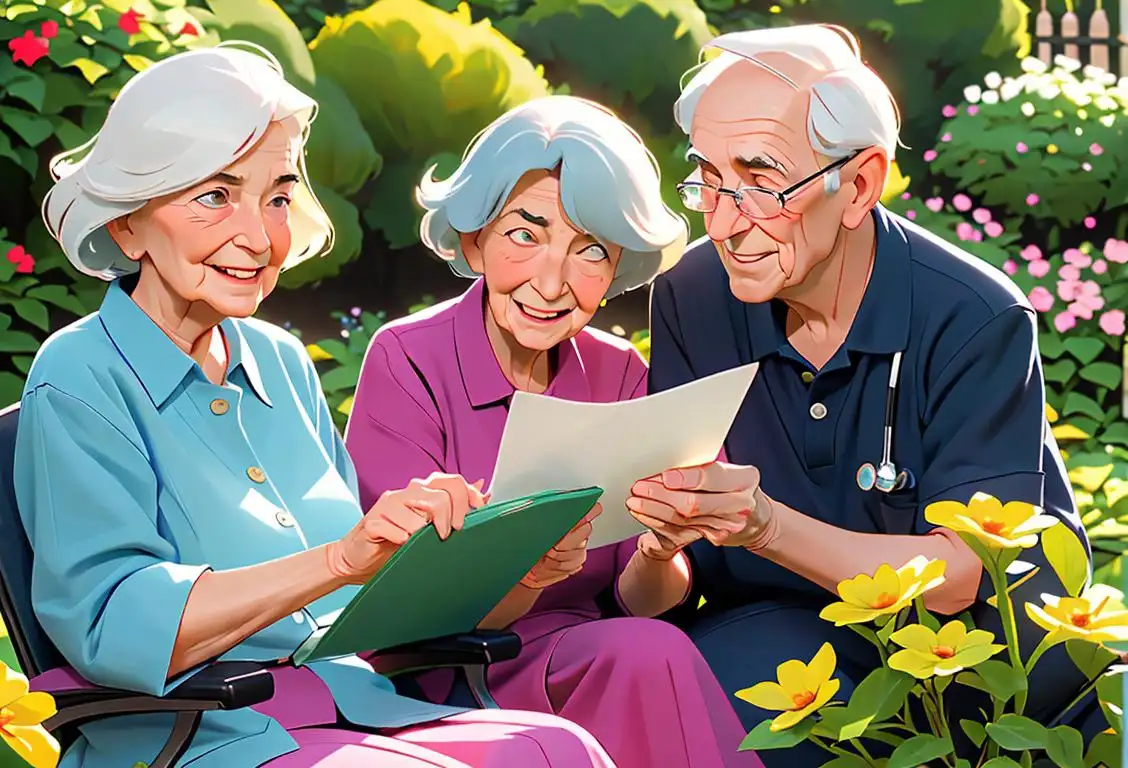National Nurse Day

Well, well, well, if it isn't our lovely hug-in-a-scrub, life-saving, bandage-rolling, stethoscope-rocking saviors of the health world. Let's roll the thermometer, oops, I mean the red carpet for National Nurses Day!
When is Nurse Day?
It's national nurse day on the 6th May.
History of National Nurses Day
This day, as the stats here at WhatNationalDayIsIt.com show, saw 3555 mentions online, achieving the crowning glory on 6th May 2020. But why? What exactly started this day that lets us celebrate these heroes in scrubs? Sit back as we inject you with some knowledge.
Believe it or not, it all started in 1953 when an 'illuminated' Dorothy Sutherland from the U.S. Department of Health proposed an official recognition day for nurses to President Eisenhower. Although he didn't make it official, thankfully, others listened and in 1974, then-President Nixon proclaimed a 'National Nurse Week'. The date, 6th May, was no random selection but a nod to the birthday of Florence Nightingale, the lady with the lamp and a beacon of the nursing profession.
Why Celebrate?
Come on, do we really need a reason? They change bedpans without grimacing, fetch ice cream at 3 am, and let's not forget the literal life-saving. They are our sunshine on gloomy health days, managing to draw blood with the gentlest stab. In the kaleidoscope of healthcare, nurses are the true unsung heroes who bring comfort and care beyond the medication.
Ways to Celebrate
There's enough room for creativity here. Send a thank-you note or maybe bake a cookie that looks like a scrub shirt, while not mandatory is sure to light up their day. And hey, social media ain't for selfie queens alone. Give a shout out to a nurse who's made a difference to you or your loved ones. Try trending a hashtag, something like #NurseMyHero perhaps?
History behind the term 'Nurse'
1860
Florence Nightingale and the Crimean War
In 1860, the term 'nurse' took on a new meaning as a result of the groundbreaking work of Florence Nightingale during the Crimean War. Nightingale, often referred to as the 'Lady with the Lamp,' revolutionized the field of nursing by implementing sanitary practices and providing care to wounded soldiers. Her efforts not only saved lives but also elevated the status of nurses as skilled professionals.
1873
Formation of the Nurses' Association
The year 1873 marked a significant milestone in the history of the term 'nurse.' The Nurses' Association, later known as the American Nurses Association (ANA), was established. This organization aimed to promote the welfare and development of nurses, setting standards for nursing education and practice. The formation of the Nurses' Association further solidified nursing as a recognized profession.
1901
Creation of the Modern Nursing Uniform
In 1901, the term 'nurse' experienced another evolution with the introduction of the modern nursing uniform. Prior to this time, nurses wore various attire, often resembling that of maids. The new uniform, designed by Isabel Hampton Robb, featured a white dress and cap, signifying cleanliness and professionalism. The standardized uniform not only enhanced the professional image of nurses but also symbolized their dedication to patient care.
1914
Recognition of Nursing as an Essential Service in WWI
The outbreak of World War I in 1914 led to a significant shift in the perception of nursing and solidified its importance as an essential service. Nurses played an integral role in caring for wounded soldiers and were recognized for their dedication and bravery. Their critical contributions during the war further elevated the term 'nurse' and highlighted the crucial role they play in healthcare.
1948
World Health Organization and Nursing
In 1948, the World Health Organization (WHO) was established, bringing global attention to healthcare systems and the role of nurses. The WHO recognized the vital contributions of nurses and emphasized the need for adequate nursing education and workforce development. This recognition on an international scale further solidified the term 'nurse' as a respected profession worldwide.
Did you know?
Did you know, the first ever nursing school was established in India (circa 250 B.C.) called 'Susrutha School of Surgery'. Yup, the healing touch of nurses dates back to centuries ago.Tagged
awareness fun remembrance healthcare nursesFirst identified
6th May 2015Most mentioned on
6th May 2020Total mentions
3555Other days
Nurse Day
Healthcare Decisions Day
Law Enforcement Day
Medal Of Honor Day
Nurses Day
Camera Day
Period Day
Former Prisoner Of War Recognition Day
Foundation Day
Rescue Dog Day








